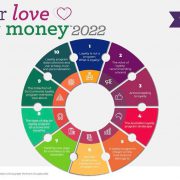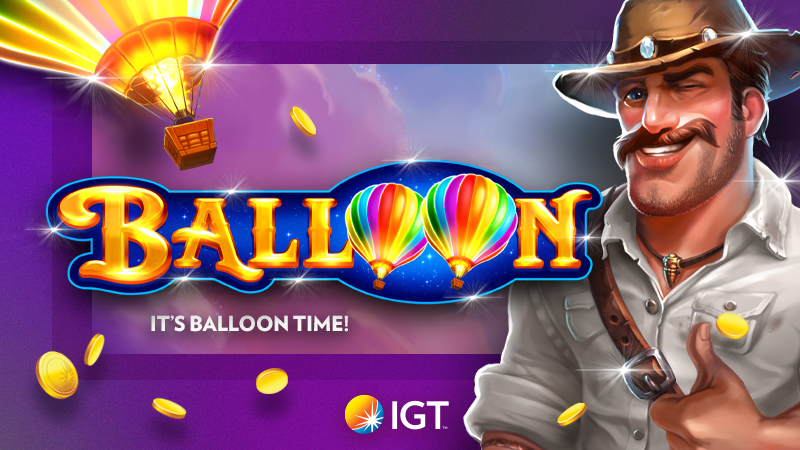MACSEER: AUDITING YOUR MARKETING PERFORMANCE
Guest article by Sudhir Kalé, Ph.D.
Australian gaming businesses typically spend between 10 percent to 40 percent of their revenues on marketing or AEMP expenses. Yet the return on marketing expenditure is seldom critically assessed. Part of the difficulty lies in deciding which expenses fall under the marketing function and which ones do not. MaCSEER (Marketing, Customer Service, and Employee Engagement Review) is an effective methodology for auditing the effectiveness of marketing-related activities.
The gaming business (comprising of clubs and casinos) is a service business and marketing audit for services varies from that for products. Berry, Conant, and Parasuraman (1991) first proposed a framework for conducting a services marketing audit.
I have fine-tuned and adapted this framework to the gaming industry under the acronym MaCSEER, built on the premise that marketing performance needs to be regularly monitored across six areas: marketing orientation, marketing organisation, new customer marketing, existing customer marketing, internal marketing and service quality.
Keep reading to find out how you can receive a complimentary MaCSEER consultation.
Marketing Orientation
Market orientation is an underlying business philosophy focused on identifying customer needs or wants and meeting them through appropriate products and people. This assessment involves answers to questions such as: Is marketing viewed as everyone’s role or solely the Marketing Department’s role? Do senior managers interact regularly with customers and frontline employees? What is the extent to which the firm engages in formal marketing research to understand the needs and satisfaction levels of customers?
True market orientation spawns a self-enriching culture that not only drives the organisation in the right direction but also facilitates the creation of a strong business strategy.
Marketing Organisation
The structure of the organisation, particularly that of the marketing department, should be conducive to effective marketing. In many Australian clubs, there exists no formal marketing department, and the club operates on “build it and they will come” orientation. Consequently, there is little conscious and systematic marketing effort toward customer acquisition and retention.
Figure 1: Six MaCSEER Components

New Customer Marketing
Compared to most businesses, gaming customers tend to be older and have higher burnout rates. Attracting new customers should, therefore, receive requisite priority in designing marketing programs. Systematic strategies for attracting new customers and allocating adequate resources for implementing such strategies need to be in place for effective new customer marketing. A careful evaluation of the firm’s advertising, promotions, targeting strategy, member acquisition strategy and brand positioning needs to be carried out to assess its performance on marketing to new customers.
Existing Customer Marketing
It can cost anywhere from five to ten times as much to attract a new customer as it does to retain an existing customer. Existing customer marketing assesses the effectiveness of activities geared to retaining and building relationships with existing customers. Customer retention is directly linked to customer lifetime value (LTV). The focus here is revenue optimisation throughout the relationship, not revenue per transaction. A study by Deloitte Consulting shows that businesses that understand LTV are about 60 percent more profitable than those that do not.
Internal Marketing
Employee expenses account for the largest single expense in a gaming business’ income statement. Also, when it comes to the customer experience, interactions with the frontline staff constitute the most important determinant of the quality. Marketing the organisation to its employees (or internal marketing) is therefore vital to providing a compelling and cost-effective gaming experience to the customer. Assessment of internal marketing involves an examination of an organisation’s recruitment strategies, training programs, internal communications and incentive programs. While many internal marketing activities arguably fall under the domain of HR, it is the role of Marketing to ensure that employees deliver on the promises it makes to customers.
Service Quality
Service quality is a measure of the degree to which the customer perceives an organisation’s performance as meeting or exceeding expectations. Assessing the gap between customer expectations and the organisation’s performance on criteria such as staff reliability, physical surroundings, empathy and assurance displayed by service personnel, and willingness of the staff to effectively cater to customer requests provides an accurate estimate of the level of service quality within a gaming setting. Service quality leads to customer satisfaction, and more importantly, to customer loyalty.
Assessment
Having a marketing audit addressing each of these six areas is indeed smart practice, but there are significant barriers to its effective implementation. These include the lack of suitably qualified independent auditors, getting buy-in from the CEO and the Board, the availability of pertinent data, and readiness of the firm to act on MaCSEER findings.
I have found it useful to rank the focal organisation against its competitors on each of the six MaCSEER criteria using a five-star system. A one-star rating would indicate very poor performance whereas a five-star rating would suggest excellent performance. The target firm can then focus improvement efforts on areas where it has low relative ratings.
____________
Sudhir H. Kalé, Ph.D., is Honorary Professor of Marketing at Bond University and Senior Advisor at BullsEye CX. He has introduced MaCSEER and many other performance-enhancing initiatives at gaming companies all over the world. Sudhir has published over a hundred articles on the marketing and management of gaming.
Complimentary MaCSEER Consultation
To schedule a complimentary session* to see how MaCSEER can be contextualised to your venue, reach out to us by emailing Brett Jones, Senior Advisor, BullsEye CX on .
* Book on or before 15th March 2019.











